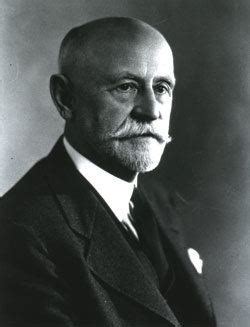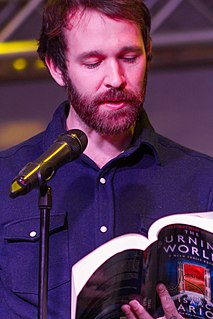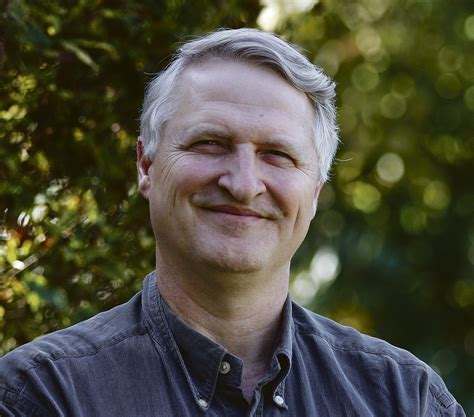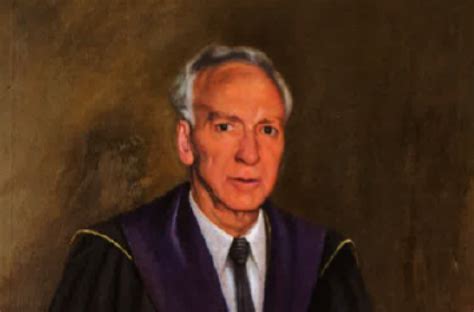A Quote by George H. Smith
The theist must present an intelligible description of god. Until he does so, god makes no more sense than unie; both are cognitively empty, and any attempt at proof is logically absurd.
Related Quotes
If someone were to ask me whether I believed in God, or saw God, or had a particular relationship with God, I would reply that I don't separate God from my world in my thinking. I feel that God is everywhere. That's why I never feel separated from God or feel I must seek God, any more than a fish in the ocean feels it must seek water. In a sense, God is the "ocean" in which we live.
When [the saints] perform actions to God, then the soul says: 'Oh! that I could do what pleases God!' When they come to suffer any cross: 'Oh, that what God does might please me!' I labour to do what pleases God, and I labour that what God does shall please me: here is a Christian indeed, who shall endeavour both these. It is but one side of a Christian to endeavour to do what pleases God; you must as well endeavour to be pleased with what God does, and so you will come to be a complete Christian when you can do both, and that is the first thing in the excellence of this grace of contentment.
The whole of God is present at every point in space at the same time. Take time to meditate on this great idea. In other words, God doesn't come and go. God doesn't capriciously move substance from God's supply "up there" to fill your needs "down here." Nor does God answer prayer in some kind of coming forth. God is always present, totally present - as a Presence.
I am perfectly confident that the man who does not spend hours alone with God will never know the anointing of the Holy Spirit. The world must be left outside until God alone fills the vision...God has promised to answer prayer. It is not that He is unwilling, for the fact is, He is more willing to give than we are to receive. But the trouble is, we are not ready...
In a very real sense my science does inform my knowledge of God. If you would allow me to say that we never know God, because if I claim that I know God, I know something other than God, because God is not knowable, he is unknowable. So we have to approach it in that sense first, that my knowledge of God is always limited.
The belief in God is not therefore based on the perception of design in nature. Belief in design in nature is based upon the belief in God. Things are as they are whether there is a God or not. Logically, to believe in design one must start with God. He, or it, is not a conclusion but a datum. You may begin by assuming a creator, and then say he did this or that; but you cannot logically say that because certain things exist, therefore there is a God who made them. God is an assumption, not a conclusion. And it is an assumption that explains nothing.


































